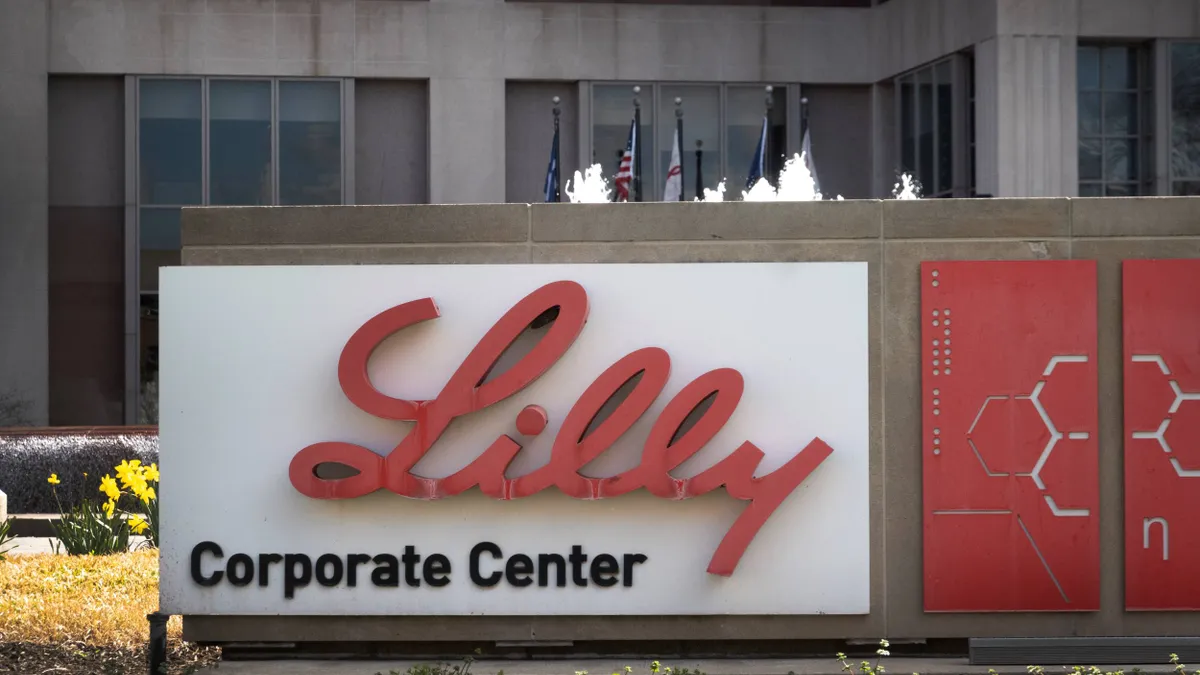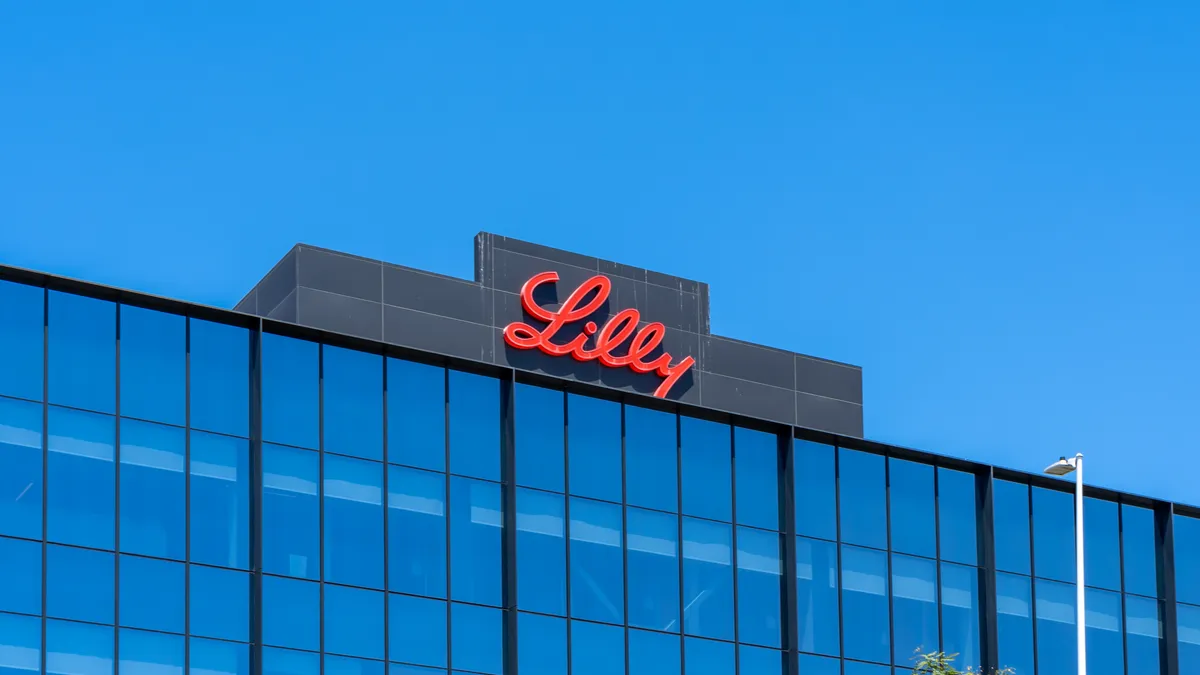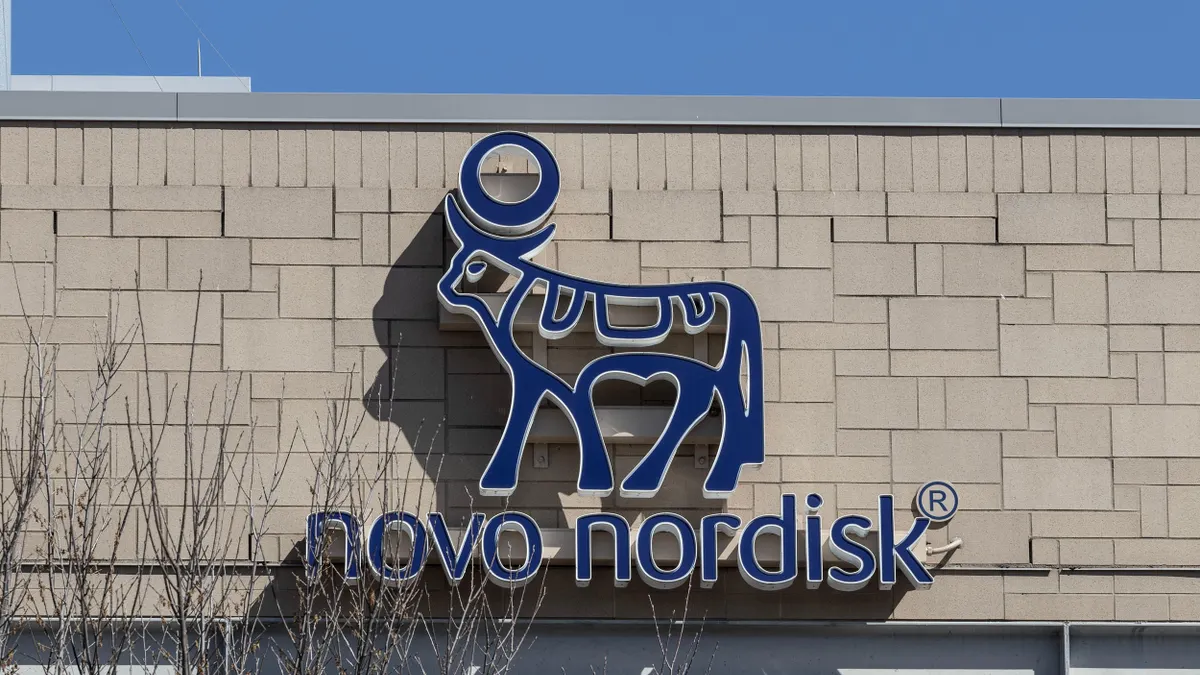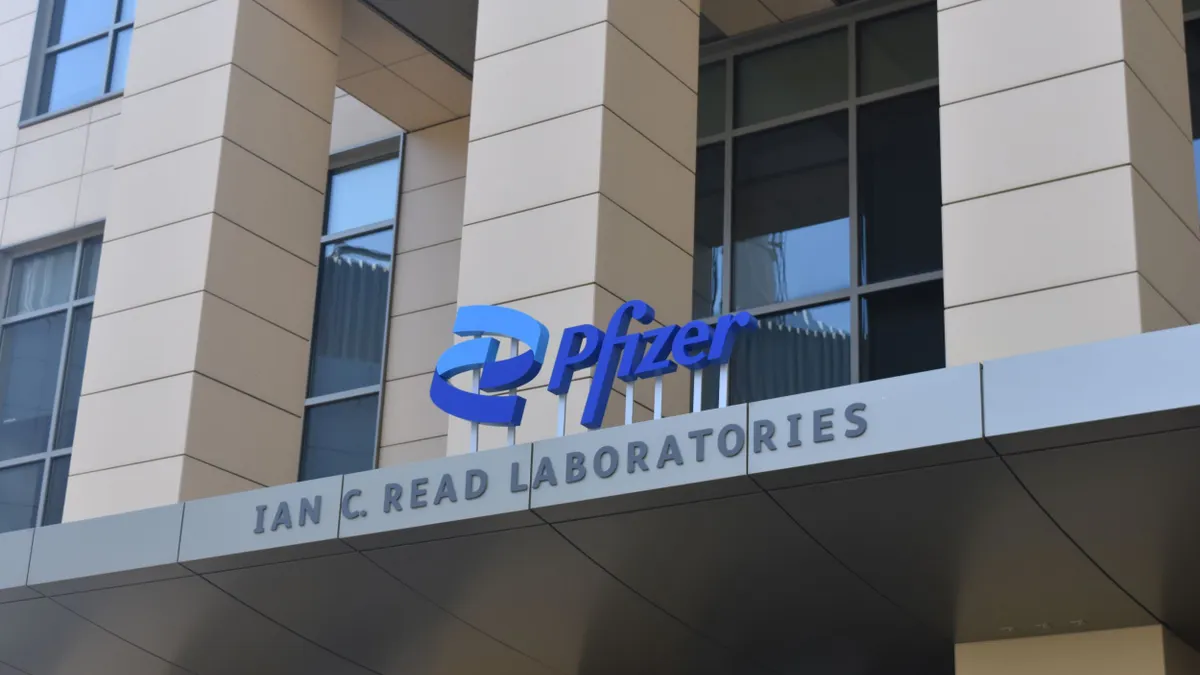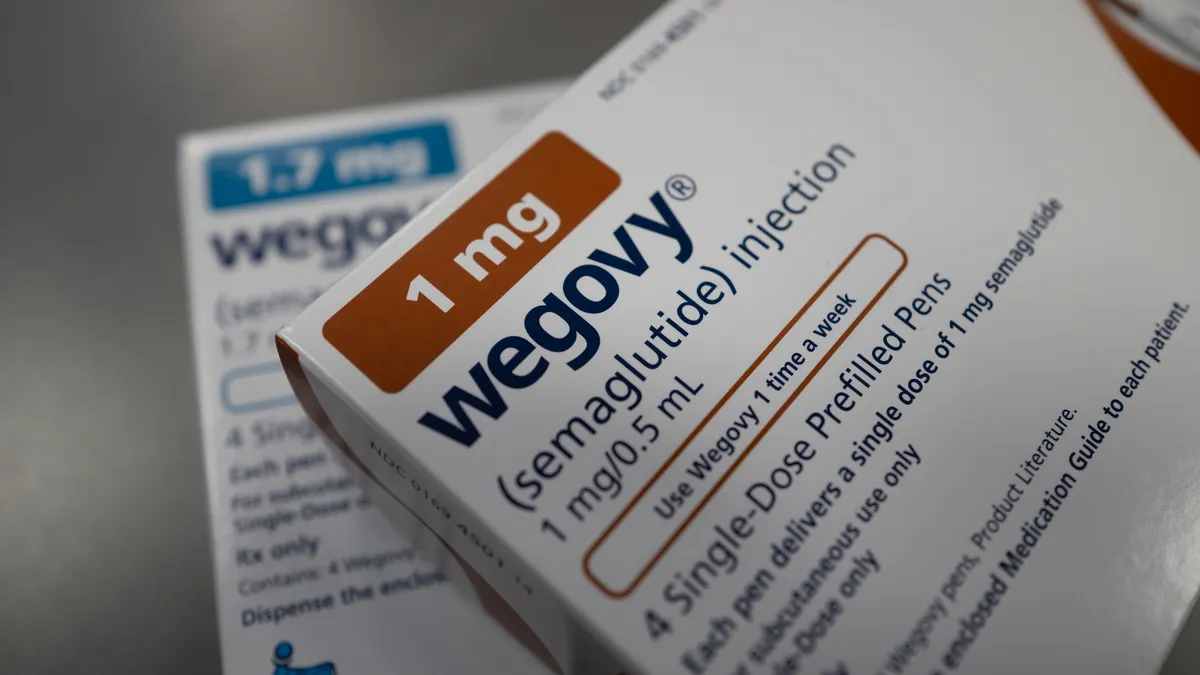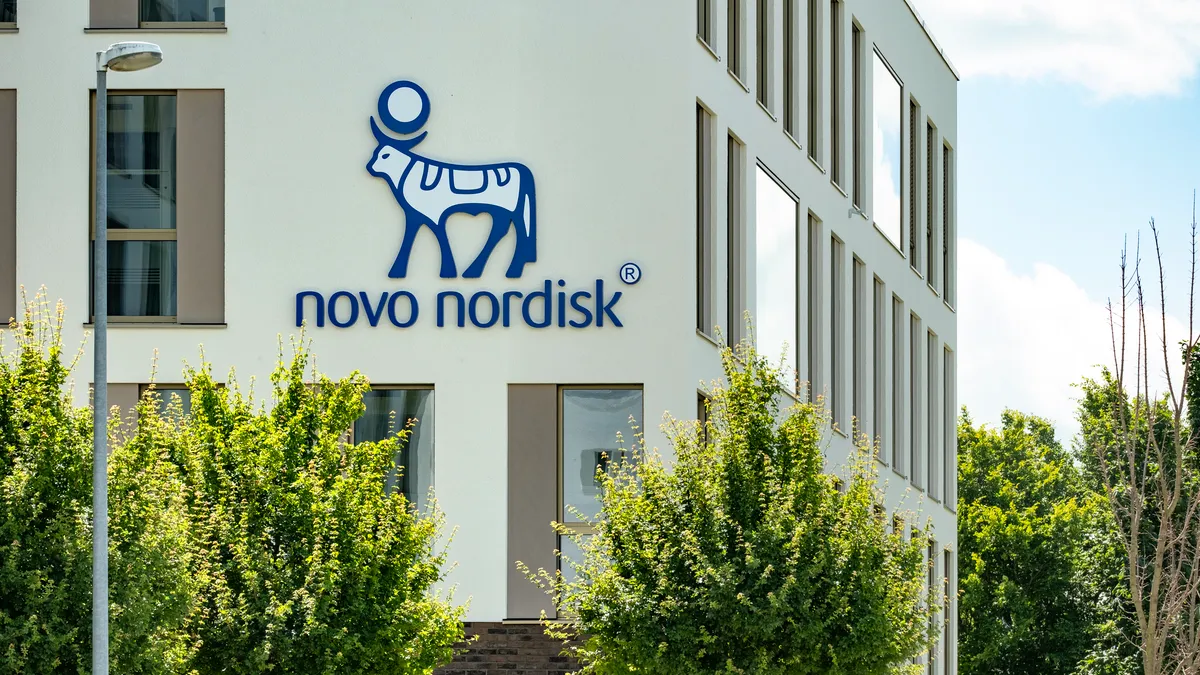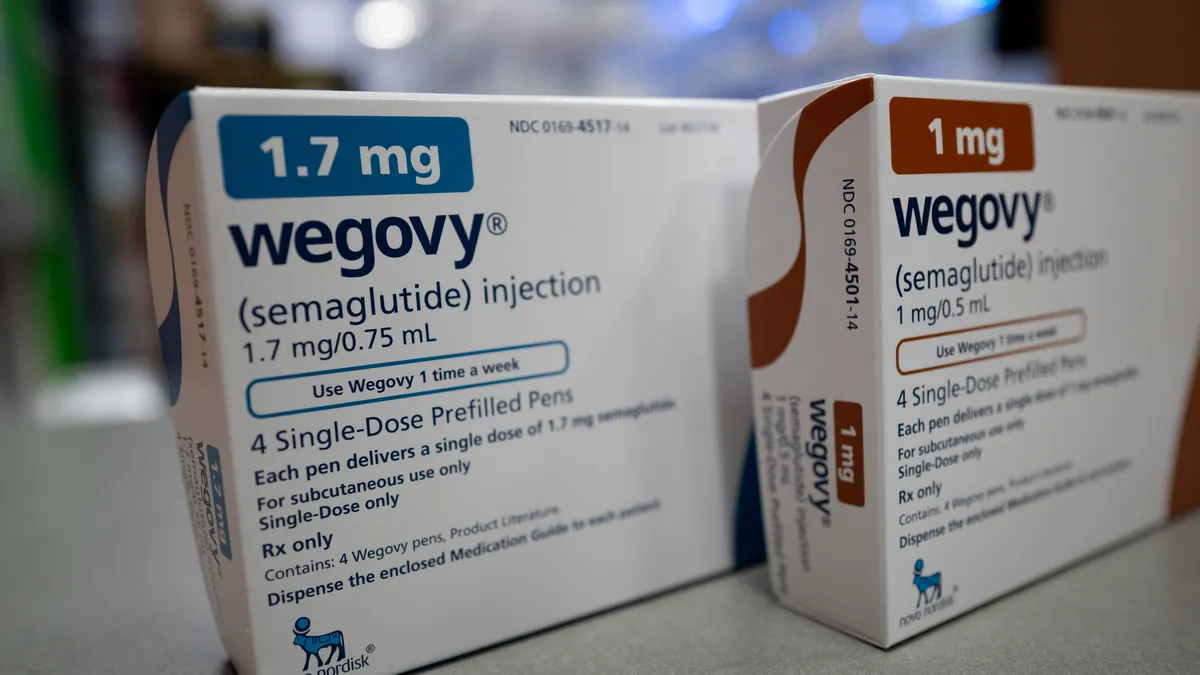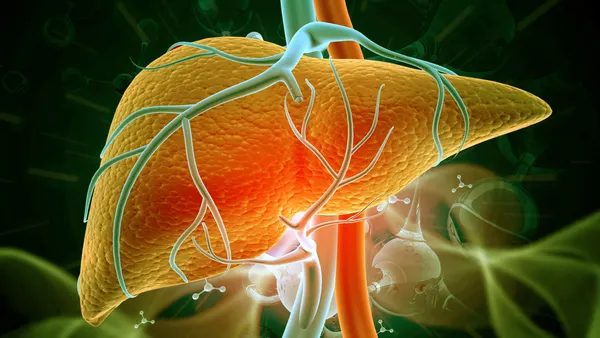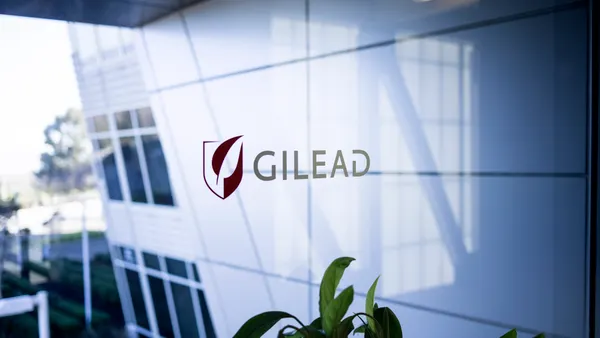Dive Brief:
- A medicine developed to treat a genetic muscle-wasting disease can improve results for patients taking GLP-1 weight-loss medicines, according to a new Phase 2 study.
- Scholar Rock has already applied for Food and Drug Administration approval of the drug, dubbed apitegromab, for patients with spinal muscular atrophy based on a Phase 3 trial that showed it could preserve muscle and improve motor function for patients with the genetic condition. The company expects to receive an answer on its submission by Sept. 22.
- The new Embraze trial compared the effects of apitegromab with a placebo in patients taking tirzepatide, the active ingredient in Eli Lilly’s obesity drug Zepbound. The weight loss in patients who received apitegromab was 85% from fat and 15% from lean mass, compared with 70% fat and 30% from lean mass for those who got a placebo, Scholar Rock said Wednesday.
Dive Insight:
The results suggest the medicine could help certain patients taking the immensely popular GLP-1 drugs, which can spur both rapid weight loss and shrink muscle mass. A number of different companies are looking at ways to address that issue because of its ramifications for future weight gain, overall metabolism and frailty, particularly among older people.
Like Scholar Rock, companies including Roche, Regeneron and Biohaven are testing treatments that work by blocking a protein called myostatin involved in limiting muscle growth. Last month, Veru reported positive results with its experimental medicine enobosarm, which works in a different way. There have also been stumbles in the field from companies including BioAge Labs.
Scholar Rock’s shares jumped 15% in early trading Wednesday after the release of the Embraze study data. But the company may wait for a partner to take the next step in obesity with apitegromab or a follow-on drug called SRK-439. Even as they heralded the outcome of the Embraze study on a conference call, Scholar Rock executives told analysts their focus remains on severe muscular neuromuscular disease.
“We love the results that we see today, but we think that this is an undertaking that may be better placed with those companies a little bit more focused on the cardiometabolic and obesity space,” CEO David Hallal said on the conference call. “We really want to stay disciplined here.”
The add-on therapies will likely be attractive to just 5% to 10% of patients, RBC Capital Markets analyst Leonid Timashev wrote in a note to clients. The most likely niche will be older patients, at risk of falls and general frailty from loss of strength that comes with muscle mass reduction. The drugs will also have to show a clean safety profile — a bar that Scholar Rock appears to have met in Embraze.
No serious side effects were observed in the study, and adverse events were generally similar between the patients who randomly received placebo and those who got apitegromab, Scholar Rock said.









